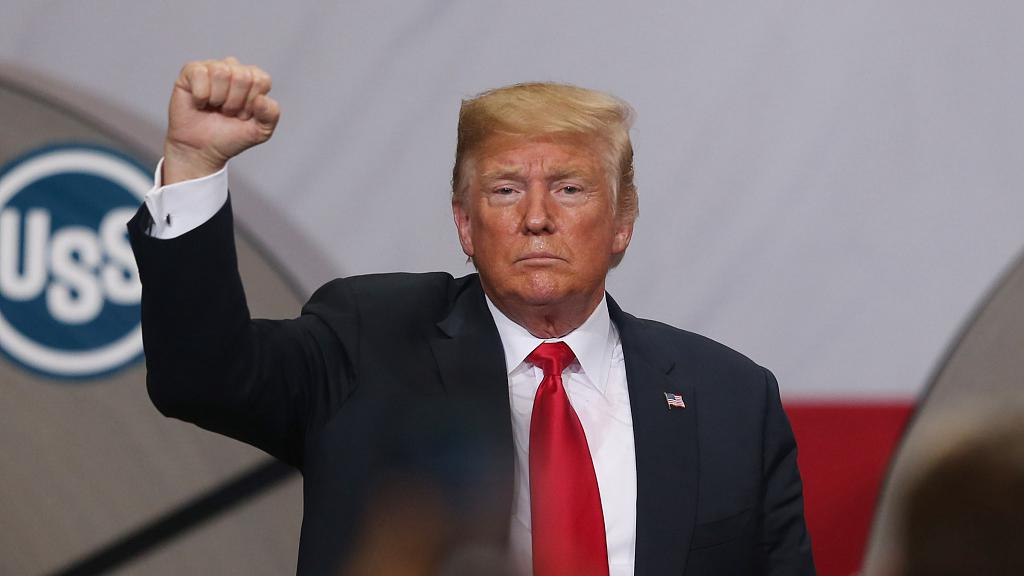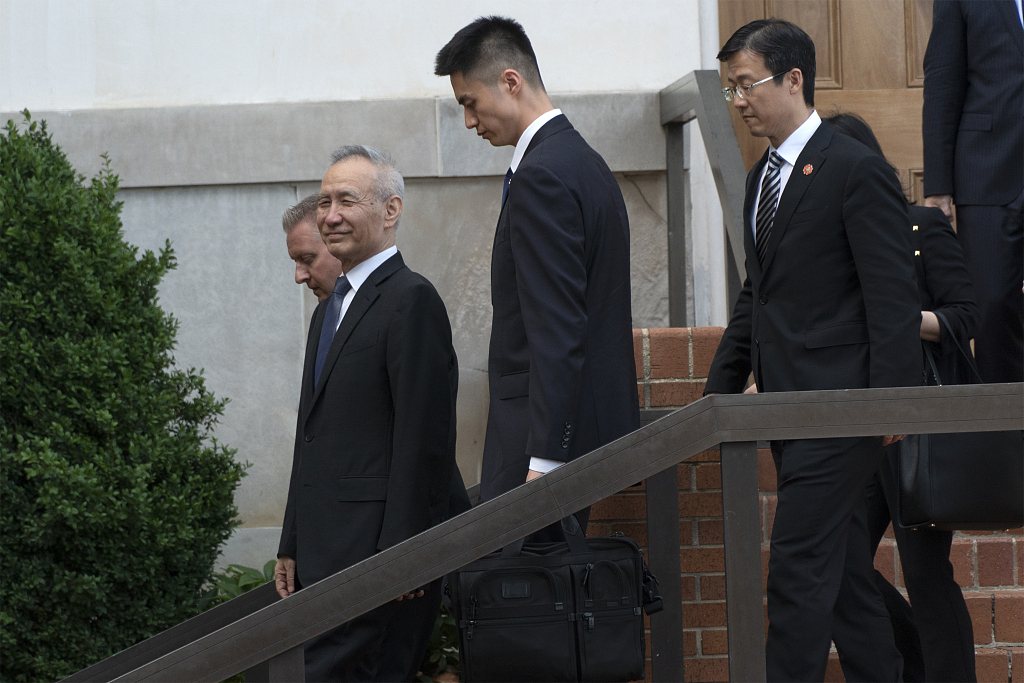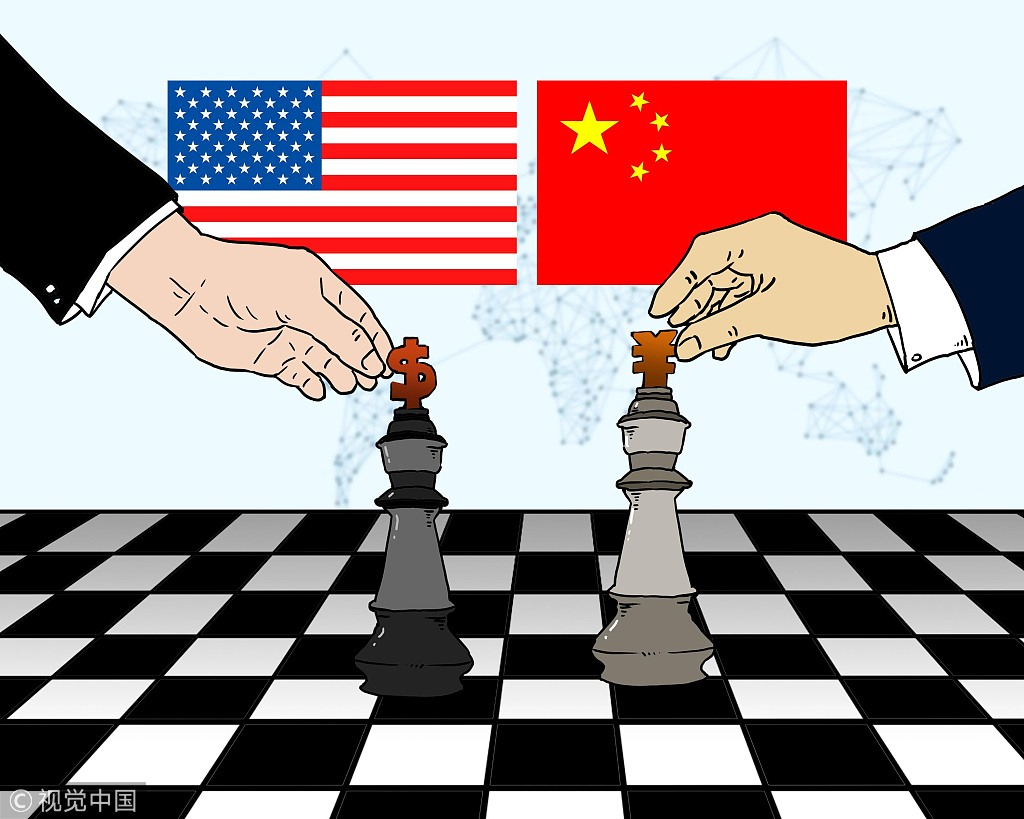
Opinion
16:43, 10-May-2019
Trump's tariffs are a political move, not an economic one
Adam Garrie

Editor's note: Adam Garrie is the director of the UK-based global policy and analysis think tank Eurasia Future and co-host of talk show "The History Boys." The article reflects the author's opinion, and not necessarily the views of CGTN.
Many economists and businesspeople have been left scratching their heads as the U.S. has started to implement a new round of tariffs on Chinese imports. Prior to Donald Trump's tariff announcement, the U.S. economy was feeling bullish as first quarter growth exceeded expectations while employment was high as was the stock market. Many were quietly confident that a trade deal between China and the U.S. was forthcoming, markets continued to give optimistic signals to investors.
Since Trump's announcement, however, markets have taken a dive and multiple business interests have been thrown into a state of confusion. These indicators show that in the short term, Trump's new round of unexpected tariffs has not been economically beneficial. At the same time, historic economic trends indicate that time and again, protectionism fails to achieve its stated goals while merely creating new problems for consumers, manufacturers and international supply chains.
If peacetime protectionist measures rarely change trade deficits or create jobs but uniformly increase consumer prices and hit export-driven industries, what is the point of Trump's trade war at all?
The answer is that the trade war is a political rather than an economic move. Because of this, rather than try to locate some economic wisdom in Trump's moves, one must instead view them as calculated acts of political gamesmanship – no different than a country testing missiles in order to try and bring a negotiating partner back to the table under favorable conditions.

Chinese Vice Premier Liu He (L), departs the Office of the U.S. Trade Representative in Washington, DC, U.S., May 9, 2019. /VCG Photo
Chinese Vice Premier Liu He (L), departs the Office of the U.S. Trade Representative in Washington, DC, U.S., May 9, 2019. /VCG Photo
For Trump, a campaign that expressed skepticism about foreign military intervention but one which beat the drum in the name of "restoring American greatness," economic warfare has been the weapon of Trump's choice. This means that countries perceived as enemies are rapidly sanctioned while countries perceived as economic rivals are placed under tariffs. Notably, this latter category includes some of America's closest traditional allies.
While China is not a traditional U.S. ally, China has refrained from being anything other than a respectful and an important trading partner to the U.S. But for Trump, perceived economic competition is only one step removed from the kind of activities that he finds distasteful about countries like Iran.
Of course, tariffs have very real negative consequences. Although the overall health of both the Chinese and U.S. economy is good, the tariffs have held back opportunities for growth and development on both sides. But within the Trump mentality, this hardly matters.
What Trump wants to accomplish from the trade war is the same thing he wants to accomplish in terms of the Korean peace process. Trump wants to look as though he was able to secure a major political victory on the world stage. When viewed from this perspective, even someone who understands little about China could rationally see why China would be perturbed and upset with this approach.
China simply wants to conduct win-win agreements with a wide variety of partners for economic rather than political reasons. As such, China would be happy for a trade deal to be signed by low-key officials from both sides so that the economies of the two countries can simply move forward.

VCG Photo
VCG Photo
But Donald Trump has stated several times that he wishes to host Chinese President Xi Jinping for an elaborate signing ceremony of a new trade deal. This indicates that while Trump sometimes says that he doesn't care if no trade deal comes about, in reality, he actually cares very much. If there is no trade deal, Trump cannot play the role of a victor before his domestic voters.
When one realizes that Trump is likely stalling for time so that his eventual self-proclaimed victory can take place as close to the 2020 election as possible, China's reactions have the ability to be adjusted accordingly. Thus far, China's reactions to Trump's tariff hike have been a rational mix of promises to implement proportional countermeasures while continuing pragmatic talks with Washington.
China's reaction is another indication that a trade deal will eventually be reached in time. If Chinese officials felt otherwise, they would not waste their time on theoretical negotiations that could not lay a proper foundation for a concrete settlement.
The moral of this story is that when a country uses tariffs as a political weapon rather than an economic tool, one must understand this and take actions in accordance with this counterintuitive reality.
(If you want to contribute and have specific expertise, please contact us at opinions@cgtn.com.)

SITEMAP
Copyright © 2018 CGTN. Beijing ICP prepared NO.16065310-3
Copyright © 2018 CGTN. Beijing ICP prepared NO.16065310-3